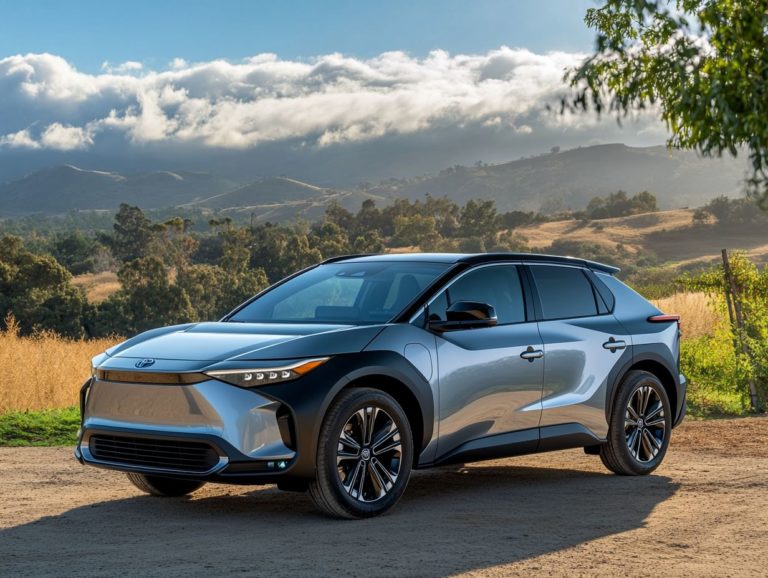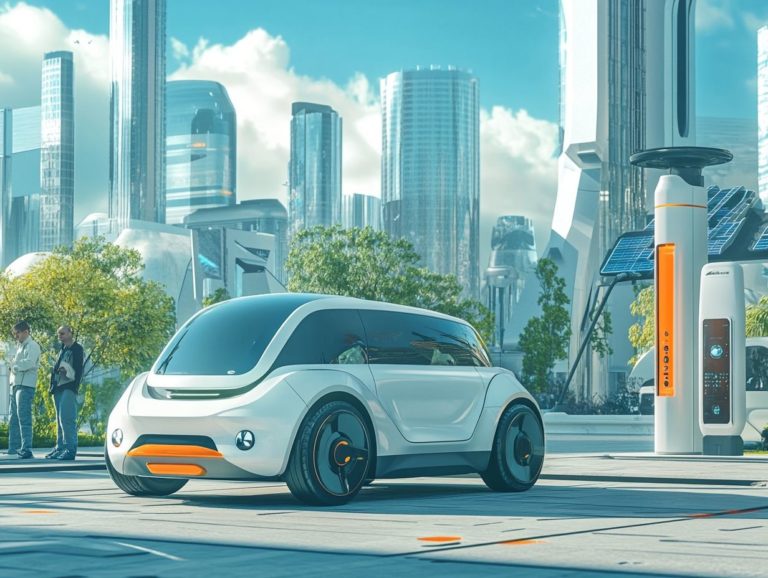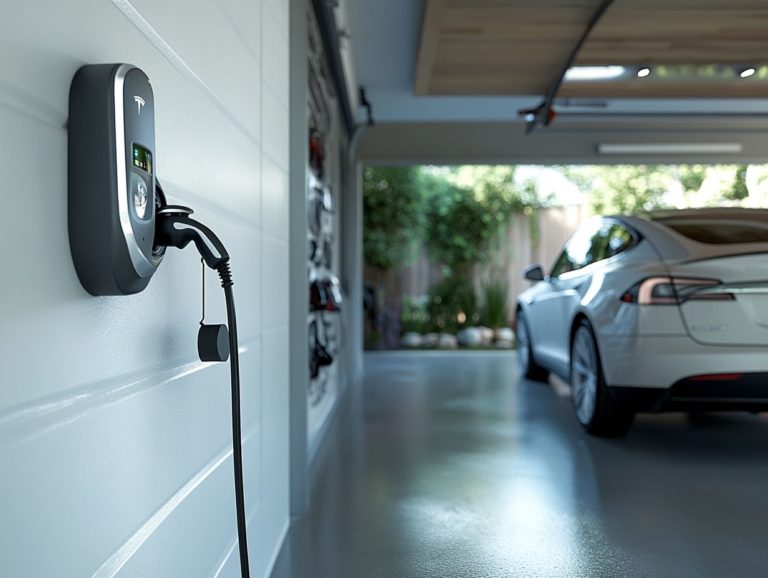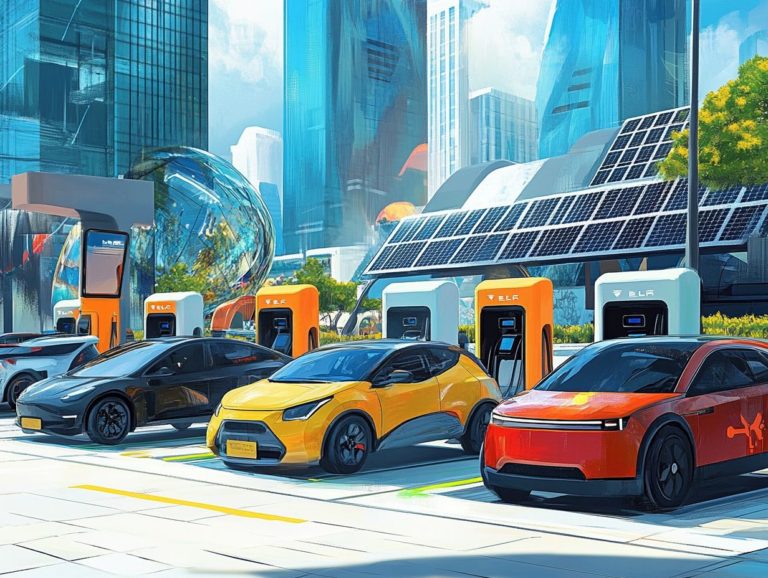Comparing Electric Vehicle Warranties: A Guide
As electric vehicles (EVs) rise in popularity, understanding their warranties is essential for any prospective buyer.
This guide unravels the complexities of EV warranties, clarifying what is included and excluded.
It explores key aspects like battery life, maintenance, and repair coverage, while comparing options from various manufacturers.
You ll find tips to maximize your warranty benefits, ensuring you make the most of your investment.
Get ready to confidently navigate your EV warranty and make the most of your purchase today!
Contents
- Key Takeaways:
- Understanding Electric Vehicle Warranties
- Must-Know Factors for Your EV Warranty
- Comparing Warranties from Different Manufacturers
- Tips for Maximizing Warranty Benefits
- Frequently Asked Questions
- What is an electric vehicle warranty?
- What is covered under an electric vehicle warranty?
- How long do electric vehicle warranties typically last?
- What is the difference between a basic warranty and a powertrain warranty for electric vehicles?
- Are there any limitations or exclusions to electric vehicle warranties?
- What should I do if I have an issue with my electric vehicle covered under warranty?
Key Takeaways:
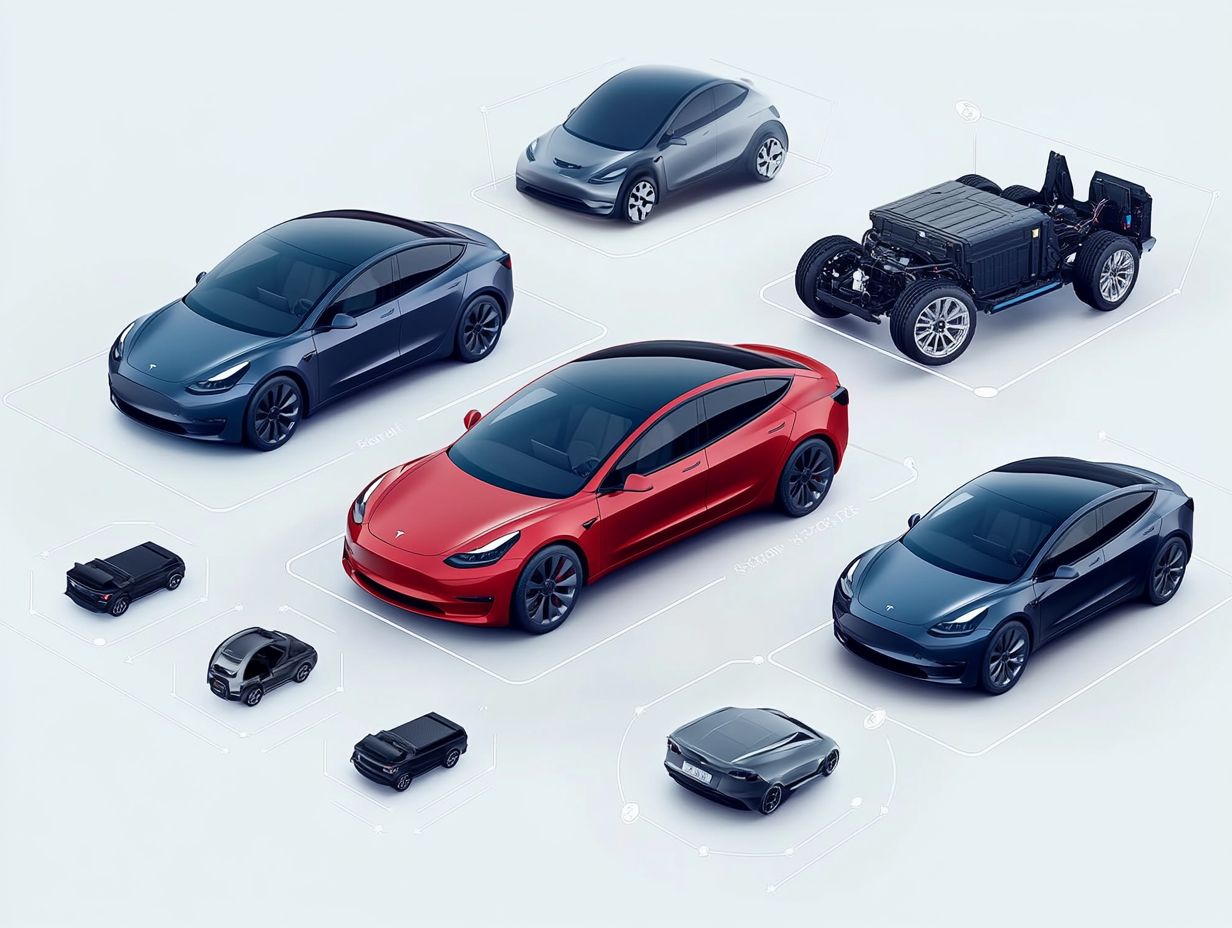
- Know what s covered and what isn t to avoid unexpected costs.
- Compare warranties based on battery life, replacement coverage, maintenance, and repair.
- Utilize proactive maintenance and warranty services to enhance your warranty benefits.
Understanding Electric Vehicle Warranties
Understanding electric vehicle warranties is crucial for anyone considering an electric car, especially when you plan to take long journeys. Having the right information can enhance your experience, making it beneficial to explore the best EVs for road trips. This knowledge changes how you enjoy your vehicle.
Knowing warranty costs, coverage specifics, and the reliability ratings of manufacturers like Tesla, Hyundai, and Kia can significantly impact your ownership experience.
By grasping warranty terms and factors that influence coverage, you can make informed decisions. This will enhance your satisfaction with your electric vehicle investment, whether you’re eyeing a Tesla Model S or a Chevrolet Bolt.
What is Covered and What is Not
Understanding what s covered in electric vehicle warranties is crucial. This knowledge affects your costs and satisfaction, particularly regarding battery replacements and repair expenses.
Typically, warranties cover critical components like the electric powertrain the system that powers the electric car along with the charge port. These warranties offer security against potential defects or failures.
However, be aware of limitations, such as exclusions for wear and tear or damage from accidents or misuse. Understanding these parameters is vital, especially if you re considering models with varying reliability ratings. This insight empowers you to make informed decisions about which vehicles provide the best long-term value and peace of mind.
Must-Know Factors for Your EV Warranty
When evaluating warranties for electric vehicles, consider several key factors. These include battery life, the specifics of the warranty itself, and the implications of battery capacity retention over time.
Each aspect can significantly influence the long-term reliability and repair costs associated with owning electric cars like the Ford Mustang Mach-E or the Nissan Leaf.
Battery Life and Replacement
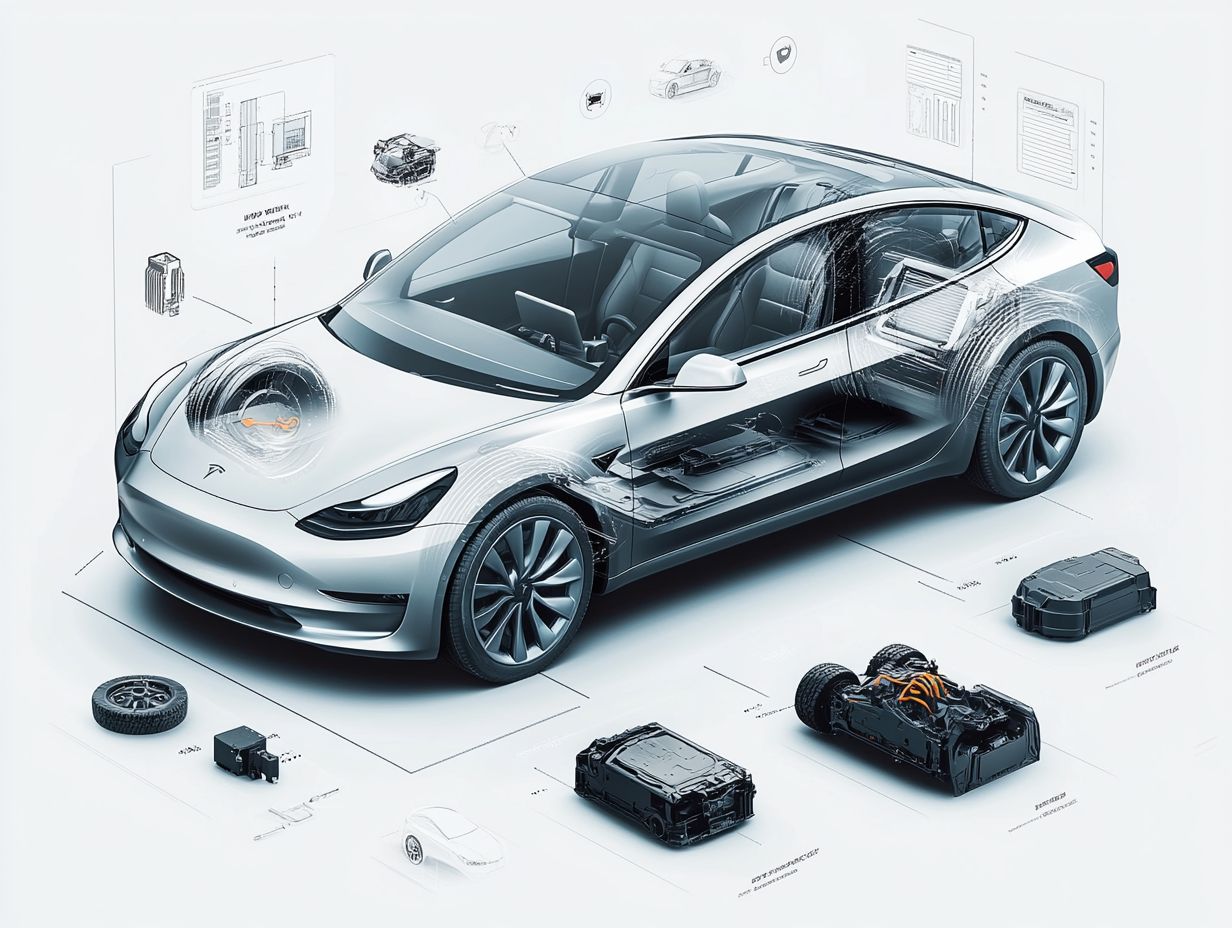
Battery life and replacement are critical for any electric vehicle owner, influencing performance, ownership costs, and warranty effectiveness.
Understanding battery degradation over time is essential, especially for those considering long-term investments in electric vehicles. Battery lifespan can vary widely among manufacturers and models, with usage patterns, charging habits, and thermal management playing significant roles.
For instance, brands like Tesla and Toyota have engineered their battery systems to withstand diverse conditions; however, eventual replacement is a reality for all EV owners. Different manufacturers address battery replacement within their warranty frameworks, often presenting varying durations and conditions for coverage. This can significantly impact your decision-making process as a buyer.
Maintenance and Repair Coverage
Understanding maintenance and repair coverage is crucial when navigating electric vehicle warranties. Comprehensive plans can significantly reduce repair costs and provide you with peace of mind, thanks to features like roadside assistance.
Different manufacturers present varying levels of warranty services, which can lead to notable differences in your overall experience. Some brands offer extensive coverage that includes not only the battery and electric components but also valuable perks like software updates and the vehicle’s inner workings.
Conversely, other manufacturers might provide more limited plans, nudging you to consider extended warranties or extra service packages that could entail additional costs.
It’s essential to dive into the fine print and compare your options carefully, making sure you select a plan that delivers robust support without any unexpected fees lurking in the shadows.
Comparing Warranties from Different Manufacturers
When comparing warranties from various electric vehicle manufacturers, make sure you choose a vehicle that aligns with your needs and consult resources like electric car costs to ensure you select one that provides comprehensive warranty coverage.
This coverage will safeguard you against potential issues, such as battery failure and other issues with parts. Prioritizing warranty options can make a significant difference in your peace of mind as you navigate the world of electric vehicles.
Coverage Details and Limitations
Understanding the coverage details and limitations of electric vehicle warranties is crucial, as it significantly impacts your financial security and the reliability of your vehicle. This is especially important when weighing factory warranties against options for EV extended warranties.
With many models available, you should familiarize yourself with what these warranties encompass, alongside any exclusions or conditions that could influence repairs and maintenance. For example, standard wear and tear, certain cosmetic damages, and battery degradation might not be covered by typical policies, potentially leading to unexpected out-of-pocket expenses.
Pay close attention to the differences in coverage periods, the types of components included, and any regular maintenance requirements that could void your warranty. Being well-informed gives you the power to make confident choices that effectively safeguard your investment.
Tips for Maximizing Warranty Benefits
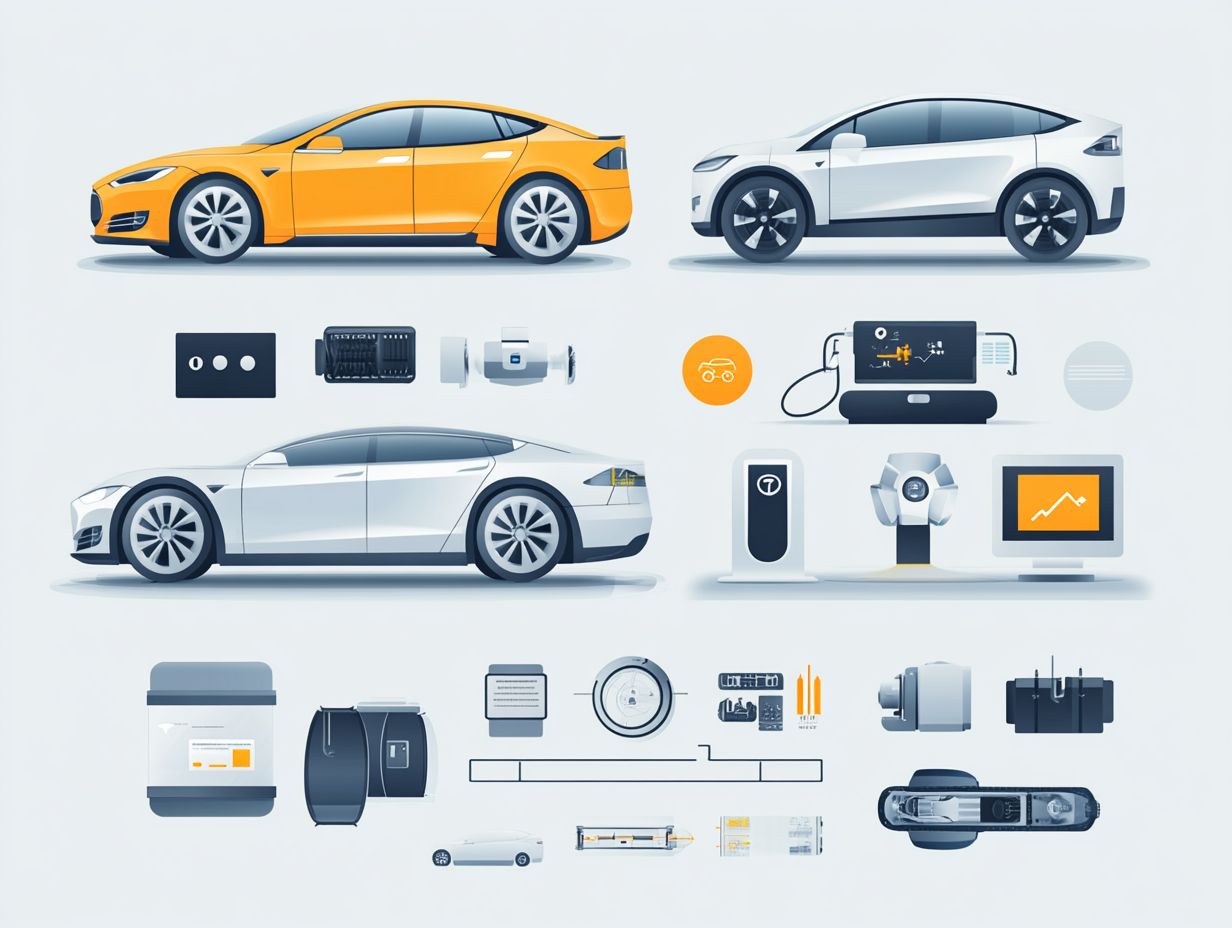
Unlock the full potential of your electric vehicle! By grasping consumer needs and engaging in regular care, you can significantly elevate your ownership experience.
Regular Care and Maintenance
Engaging in regular care and maintenance measures can significantly reduce your warranty costs and repair expenses, ensuring your electric vehicle maintains optimal battery capacity retention and overall performance.
Regularly checking tire pressure, monitoring brake system efficiency, and ensuring timely software updates can greatly enhance your vehicle’s longevity. Keeping your charging equipment clean and adhering to an appropriate charging regimen not only preserves battery health but also helps prevent complications that could lead to warranty claims.
Regularly examining your vehicle’s cooling system and battery connections can avert potential malfunctions. By adopting these strategies, you encourage a smoother driving experience while safeguarding yourself against unexpected repair costs, ultimately providing you with greater peace of mind as an owner.
Utilizing Warranty Services
Utilizing warranty services effectively can greatly enhance your overall ownership experience with electric vehicles. These services offer benefits like roadside assistance and rental car reimbursement during repairs or maintenance.
To make the most of your warranty, take time to familiarize yourself with the specific coverage details in your warranty documentation. Understand which components and systems are included, along with any available add-ons.
Keep clear records of your regular maintenance and service appointments. This simple step can make claims easier and faster! If an issue arises, reach out to customer support promptly and ensure that all communication is well-documented.
Stay informed about any warranty changes or updates. This knowledge can help you fully leverage the services at your disposal.
Frequently Asked Questions
What is an electric vehicle warranty?

An electric vehicle warranty is a promise made by the manufacturer or seller, stating they will repair or replace any defects or issues with the vehicle within a certain time period.
What is covered under an electric vehicle warranty?
The specific coverage can vary, but generally it covers defects in materials, workmanship, and parts of the vehicle that arise during normal use.
How long do electric vehicle warranties typically last?
Electric vehicle warranties can range from 3 years/36,000 miles to 8 years/100,000 miles, depending on the specific components like the battery.
What is the difference between a basic warranty and a powertrain warranty for electric vehicles?
A basic warranty covers the entire vehicle, while a powertrain warranty covers parts that help the vehicle move, like the motor, transmission, and drivetrain. Electric vehicles may have separate warranties for these components.
Are there any limitations or exclusions to electric vehicle warranties?
Yes, common limitations and exclusions include normal wear and tear, damage from accidents or misuse, and modifications made by the owner.
What should I do if I have an issue with my electric vehicle covered under warranty?
If you experience issues covered under warranty, contact the manufacturer or dealership where you purchased the vehicle. They can assist you with necessary repairs or replacements.
Don t hesitate to contact customer support if you need help!

